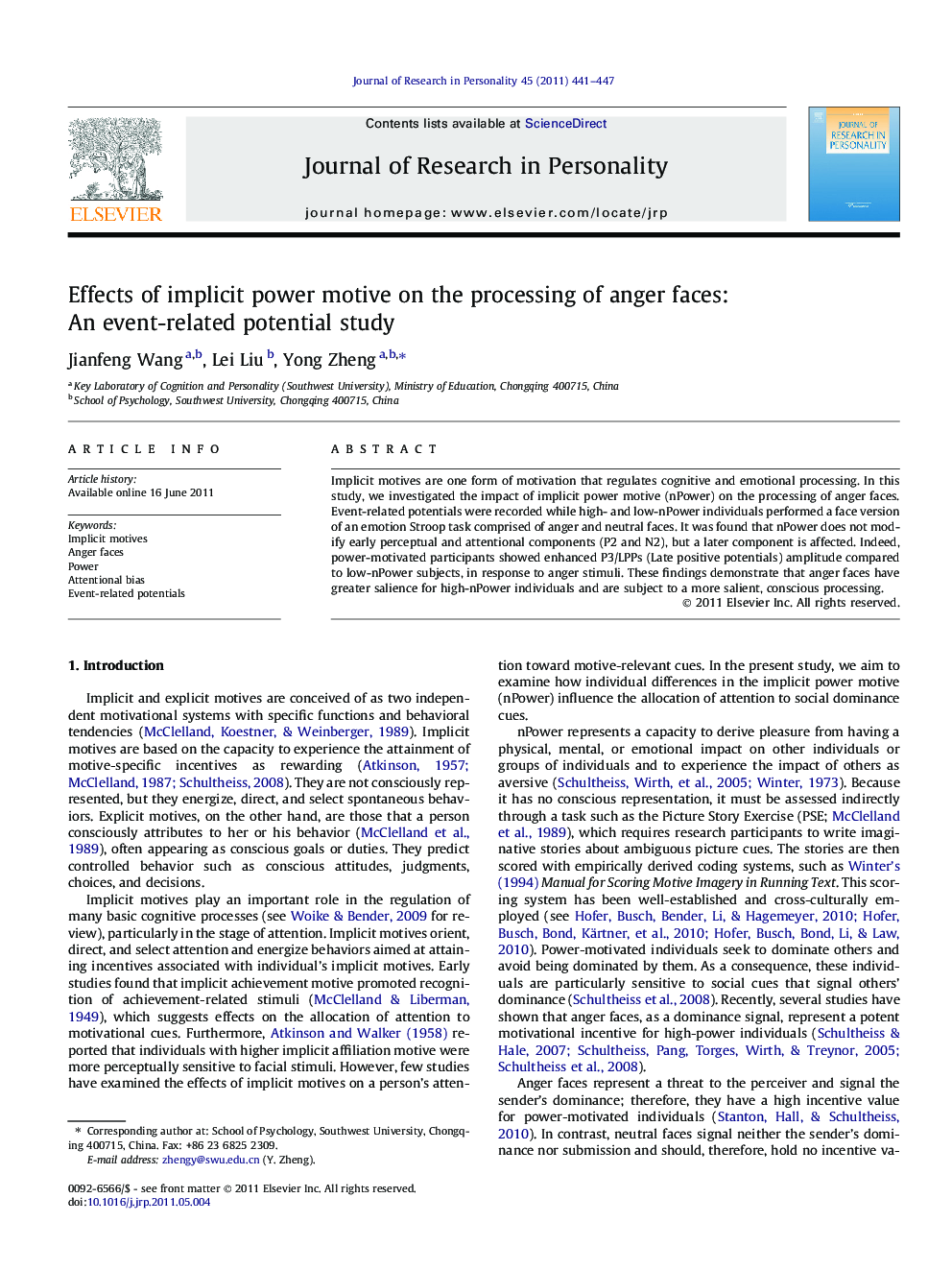| کد مقاله | کد نشریه | سال انتشار | مقاله انگلیسی | نسخه تمام متن |
|---|---|---|---|---|
| 951463 | 927235 | 2011 | 7 صفحه PDF | دانلود رایگان |

Implicit motives are one form of motivation that regulates cognitive and emotional processing. In this study, we investigated the impact of implicit power motive (nPower) on the processing of anger faces. Event-related potentials were recorded while high- and low-nPower individuals performed a face version of an emotion Stroop task comprised of anger and neutral faces. It was found that nPower does not modify early perceptual and attentional components (P2 and N2), but a later component is affected. Indeed, power-motivated participants showed enhanced P3/LPPs (Late positive potentials) amplitude compared to low-nPower subjects, in response to anger stimuli. These findings demonstrate that anger faces have greater salience for high-nPower individuals and are subject to a more salient, conscious processing.
► We examine power-modulated facial processing using ERP for the first time.
► Power-motivated subjects show enhanced P3/LPP amplitude in response to anger faces.
► Results indicate that anger faces have greater salience for power-motivated subjects.
Journal: Journal of Research in Personality - Volume 45, Issue 5, October 2011, Pages 441–447